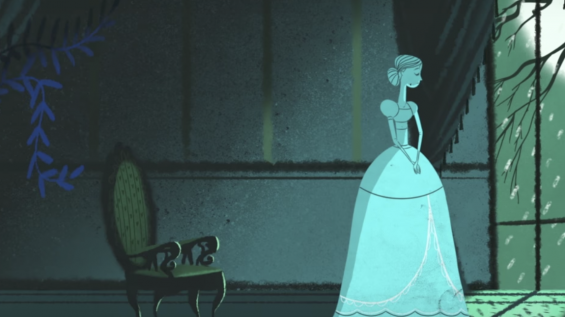
50 books to read in 2016: TED-Ed Educators and TED Speakers share their picks
What should you read next? From art history to science fiction, here are 50 fantastic books recommended by TED speakers and TED-Ed educators:
ART AND ART HISTORY
Ways of Seeing by John Berger – “This is a classic art text first published in 1972 to accompany a BBC series by the same name. If you are a student, teacher, or fan of the visual arts, and you haven’t read this book yet, be sure to put it at the top of your reading list. Today more than ever before, it is critical that we teach students how to decipher and interpret visual media. Ways of Seeing, even though published long before the internet, will shift the way you think about how to process visual information.” *Recommended by TED-Ed Educator Laura Morelli
Art as Experience by John Dewey - “I love that he pulls the aesthetic out of the rarified and into the everyday. He makes the point of art as absolutely accessible and essential.” *Recommended by TED Speaker BJ Miller
Big Magic: Creative Living Beyond Fear by Elizabeth Gilbert - “Gilbert has a phenomenal lens on how creativity really works. Throughout the book, she reminds you that if you take creativity off a precious pedestal and just keep working on something, magic does happen.” *Recommended by TED Speaker Rachel Botsman
The Singing Neanderthals: The Origins of Music, Language, Mind and Body by Steven Mithen - “This is a brilliant read for anyone who is passionately connected to music. Mithen brings together psychology, evolutionary biology, neuroscience, archaeology and more to uncover just how deeply music is embedded in our species. Immensely readable, quirky and full of insight into our human condition, this book drops my jaw at least once per chapter.” *Recommended by TED Speaker Meklit Hadero
Lost in Learning: The Art of Discovery by Eva Timothy - “This art book offers an unique perspective on the Age of Discovery, exploring what the great scientists, artists and thinkers of that age have to teach us about the art of learning. Through stories and photographs of the original manuscripts and artifacts, the tales of these larger than life figures like Galileo, Columbus and Newton become reminders that great genius springs from seeds of imagination and curiosity. A great read for the life long learner or those students and teachers looking to infuse education with greater purpose and inspiration.”
*Recommended by TED-Ed Educator Eva Timothy
BIOGRAPHY
Trashed by Derf Backderf - “I spotted this graphic novel on a shelf at my favorite indie bookstore and it blew me away. A fascinating and gritty autobiographical account of working on a sanitation truck in a small town, it overflows with great characters and moments (including a few memorable ones involving maggot-infested trash cans). It’s the perfect gift.” *Recommended by TED Prize winner Dave Isay
My Bondage and My Freedom by Frederick Douglass - “‘No man can put a chain about the ankle of his fellow man without at last finding the other end fastened about his own neck.’ To me, this quote perfectly illustrates the effect that slavery had on those who were raised to uphold its tenets. That a system can be a detriment even to those that may benefit from it I find incredibly poignant even in today’s society. It’s so important that we recognize the implications of our beliefs both in how they affect ourselves as well as others. My Bondage and My Freedom not only taught me about the cruel reality of slavery but also showed that in the most depraved systems humanity will seek to reach its potential no matter what obstacles are placed in its path.” *Recommended by TED speaker Zak Ebrahim
Barbarian Days: A Surfing Life by William Finnegan - “Sometimes I just want to read a book that makes me want to quit my job and travel the world to look for adventures. This is that kind of book. Framed in his lifelong addiction to surfing, Finnegan writes raw and beautifully about growing up as a haole in Hawaii, coming of age and exploring the world in search of waves and purpose, and later the complex question of balancing family, work and hours spent doing what you love the most. He is also one of the very few writers around who is able to explain the often absurd dedication and driving addiction surfers have for breaking waves, without getting tangled up in clichés and at the same time making it understandable for a wider audience.” *Recommended by TED speaker Anders Fjellberg
Unjust Deeds: The Restrictive Covenant Cases and the Making of the Civil Rights Movement by Jeffrey D. Gonda - “This book tells the story of six African-American families who won a landmark Supreme Court case attacking housing discrimination in the years after World War II. I love it because of the richness of the writing, the timeliness and importance of the topic, but most of all because of the people whose stories it tells. It’s a reminder of the extraordinary power that individuals can have when they decide to take a stand for justice.” *Recommended by TED Speaker Jedidah Isler
Romantic Outlaws: The Extraordinary Lives of Mary Wollstonecraft and Her Daughter Mary Shelley by Charlotte Gordon - “Wollstonecraft and Shelley are two of the most important women most people have rarely thought about. They believed passionately (and at great cost) in the equality of women and the vital, distinctive contribution women should be able to make to human history. Their stories alone are remarkable, but Charlotte Gordon’s idea to interweave the two biographies brilliantly explores the deep relationship between the mother and the daughter who never knew each other. In their search for a richer and more liberated way of life, the Romantics cherished Wollstonecraft’s writing and the daughter they hoped would embody the life of imaginative emancipation. What a legacy — but what an inspiration.” *Recommended by TED Speaker Margaret Heffernan
The Last Lecture by Randy Pausch - “This book, like all good books, asks you to think about the important things in your life. It makes you consider what it is you value and requires you to consider whether or not your life mirrors those values. Finally, it is short. It could easily be read in one sitting, but you’ll think about it for weeks.” *Recommended by TED-Ed Educator Zack Patterson
Writing My Wrongs: Life, Death and Redemption in an American Prison by Shaka Senghor - “After a few pages, I knew this book was going to alter my perception on incarceration in America, as we need to hear first-hand stories straight from people who were systematically put there rather than through Hollywood movies or researchers or journalists. Throughout the whole book, I was like, ‘This is happening right in my backyard?’ Shaka spent 19 years transferring from one prison to another and experiencing each one’s subculture and unwritten rules. His words are honest and very necessary, and I hope they will help humanize incarceration policies. Or, better, to use education and mentorship to find a way to prevent young kids from being incarcerated. Their bodies do not belong to any system or country but themselves, and it is our responsibility to listen.” *Recommended by TED Speaker Christine Sun Kim
Just Mercy: A Story of Justice and Redemption by Bryan Stevenson - “This book showed that you can tell the stories of the roughest, the most searing, the most inhumane parts of our world, and leave your audience feeling more human and more hopeful than before.” *Recommended by TED Speaker Jake Barton
Wangari’s Trees of Peace by Jeanette Winter - “This is one of my daughter’s favorite books. I like it too because it is never too early to teach children about protecting the environment, social activism and standing up for what is right.” *Recommended by TED Speaker Benedetta Berti
ENGLISH AND WRITING
The Mother Tongue: English and How It Got That Way by Bill Bryson - “Pure linguistical pleasure, now available in paperback. Soaked in wit, saturated with literary dexterity, and steeped in a deep, tender delight in the way we communicate, this is a nearly euphoric 272 pages.” *Recommended by TED-Ed Educator Jessica Oreck
The Books in My Life by Henry Miller - “A book about books and how reading is part of an expansive life. From an essay on Balzac, to praise for the Indian teacher Krishnamurti, to an exploration of Madame Blavatsky — the Russian traveler turned clairvoyant — he looks over the books that he loved over a long life. Along with great reading recommendations, the essays quietly encourage a kind of intellectual egalitarianism. For Miller, reading widely is more vital than reading the acclaimed masters when it comes to developing our own sensibilities, and he reminds us that as much as great books carry us away, they ultimately bring us more into the world.” *Recommended by TED-Ed Educator Courtney Stephens
FICTION
Journey by Gheysika Adombire Agambila – “Journey recounts the coming of age of Amoah, a teenage school leaver keen to make his mark on the world. Sex and girls are high on the adolescent’s list, as are going to live with his uncle and getting a job in Accra, far away from his grandfather’s traditional village. But as reality bites, Amoah begins to lose his prefect’s swagger and realize there is more to life in contemporary Ghana than his neo-colonialist boarding school could hope to prepare him for.” *Recommended by TED Speaker Ann Morgan
Foundation by Isaac Asimov - “Asimov was a masterful fringe thinker, and this first book in the Foundation series shows just how attuned he was to possible and plausible future scenarios. Although it’s 50 years old, Foundation is especially provocative reading given our current state of world affairs — in order to save humankind and the vast knowledge we have accumulated, the main character gathers the smartest thinkers and forms a secret society. But that doesn’t go exactly as planned, either.” *Recommended by TED Speaker Amy Webb
Jane Eyre by Charlotte Brontë - “I read this when I was eight. And I’ve read it a few times since, and watched it onscreen too. Nothing dulls it or stops me loving small, plain Jane, a Yorkshire lass like me, who had more spirit and fire in her 150 years ago than I probably do today, with all my modern freedoms and privilege. I love the story because it is a tale of a woman becoming free, while still being a classic love story. I mean, there’s even a madwoman in the attic. But I love Jane because I love Charlotte too: a woman who triumphed in a deeply patriarchal world, getting published and getting famous, while living in a cold, glum vicarage on the edge of the moors. Emily Brontë’s Wuthering Heightsis seen as a trickier, better book by many, because they are fooled by the romance of Jane Eyre. Look behind that, and you find a character as complex and wonderful as any Cathy or Heathcliff, in little, plain Jane, who would always ‘rather be happy than dignified.’” *Recommended by TED Speaker Rose George
What Is the What by Dave Eggers - “An epic odyssey of a young ‘lost boy’ from Sudan, Valentino Achak Deng, who, along with tens of thousands of other children, escapes a brutal civil war and faces attackers, wild animals, hunger and thirst along his trek. He ends up in sprawling refugee camps in Ethiopia and Kenya and is finally resettled to the U.S., where opportunity awaits him but also a series of shocking setbacks. But nothing dampens his spirit and wisdom, and the reader turns page after page, hoping he makes it unscathed, and emerges with a profound understanding of the driving will for survival, the resilience of the human spirit and the transformative power of helping refugees.” *Recommended by TED Speaker Melissa Fleming
Gabriella’s Song by Candace Fleming - “Whenever I am asked to do a writer’s workshop with elementary-aged students, I always bring this book along with me. Gabriella’s Song is a great example of how to incorporate sensory writing—describing sights, sounds, smells, touch, and taste—into your stories. The illustrations are beautiful, and of course, the subject matter is near and dear to my heart!” *Recommended by TED-Ed Educator Laura Morelli
American Gods by Neil Gaiman – “Bold, baggy and mind-boggling, the novel traces the fate of the gods brought to the land of the free by immigrants, right from the arrival of the earliest prehistoric visitors to the refugees and fortune-hunters of the present day.” *Recommended by TED Speaker Ann Morgan
The Old Man and the Sea by Ernest Hemingway - “I love this book because it is a literal tour de force, written in simple and powerful language. Set primarily at sea, it follows the struggle of an aging fisherman and his quest for success. It’s a story of the human spirit in the face of adversity, which is something everyone can relate to, even at different ages. It’s a short novel, purposefully written, and perfect for summer reading. Even if you don’t make it to the beach, this book transports you to the wilderness of the sea and the adventure that awaits.” *Recommended by TED-Ed Educator Claudia Aguirre
Solar by Ian McEwen - “What motivates scientists? This dark thriller collides human fallibility with revolutionary physics. Disturbingly convincing yet highly readable — a bleak vision deftly carried by McEwen’s light touch.” *Recommended by TED-Ed Educator Andrew Pontzen
The Bluest Eye by Toni Morrison - “The complexities and intersectionality of race and gender are so detailed in this novel. What does it mean to be black and a girl growing up in the US is something that scholars and women are still trying to address in current debates.” *Recommended by TED-Ed Educator Christina Greer
Akata Witch by Nnedi Okorafor - “I love fantasy and science fiction, but people of color are sorely underrepresented across the speculative fiction universe. This young adult coming-of-age story’s main character struggles with her bi-cultural identity, which resonates with me. (She also struggles with understanding her magical powers, which I can also relate to.) I read this book to my daughter, and we both couldn’t wait to get to it every night.” *Recommended by TED Speaker Mia Birdsong
Super Sad True Love Story by Gary Shteyngart - “In his third novel, Shteyngart combines the self-absorbed pathos of the immigrant experience explored in his previous work with an imaginative rendering of a near-future dystopia that is at once absurd and all too familiar. A sadly believable modern romance weaves through a masterful satire that touches on everything from passively-accepted mass surveillance and the ubiquity of social media to the inability of technological promises to forestall economic and political decline. Both darkly comical and piercingly poignant, the story is a seamless merging of the personal and the universal.” *Recommended by TED-Ed Educator Alex Gendler
The Blue Sky by Galsan Tschinag – This Mongolian novel is written from the point of view of a shepherd boy. “His perspective is so beautiful and the writing is so extraordinary that it really takes you into this very different world, where all kinds of weird things happen.” *Recommended by TED Speaker Ann Morgan
HISTORY
1491 & 1493 by Charles C. Mann - ”Both books are about the connections between the Old and New Worlds. 1491 tells about the great and small civilizations on this side of the Atlantic, in most respects as complex and advanced as those of Europe. 1493 is the story of the exchange of foodstuffs, tools, people, diseases, and knowledge that began with Columbus’ “discovery.” You will find something on every page that you never knew before.” *Recommended by TED-Ed Educator John Bellaimey
The City in History by Lewis Mumford - “This is a deservedly long read looking at the history of the city, and/or at all of human history as seen through the city experience. You’ll come out of it with a new perspective on people’s relationships with their surroundings, their government, and each other. You’ll also have more informed ideas on how we might find some way to all live together in an increasingly urbanized future.” *Recommended by TED-Ed Educator Addison Anderson
The Swerve: How the World Became Modern by Stephen Greenblatt - “It’s a history book that reads like a tale of discovery. It’s the story of an Italian book hunter who rediscovers a long poem named “On the Nature of Things,” long since forgotten by Europeans, in the archives of a German monastery. The poem goes on to influence Botticelli, Montaigne and Shakespeare and help an entire culture fall back in love with beauty, happiness and humanity in general.” *Recommended by TED-Ed Educator James Earle
The Discoverers by Daniel Boorstin - “A wonderfully readable history by former Librarian of Congress, Daniel Boorstin. This is a history book that emphasizes story, weaving an engaging narrative of the characters and episodes that define humankind’s exploration of the world and the uncovering of its secrets.” *Recommended by TED-Ed Educator Eva Timothy
Marco Polo: From Venice to Xanadu by Laurence Bergreen - “Currently I’m reading Laurence Bergreen’s account of Marco Polo’s journey to the court of Kublai Khan in the thirteenth century. It’s easy to become engrossed in this tale of adventure, and I’ve especially enjoyed reading about the unexpected predicaments that must have been guaranteed for anyone embarking on a long journey during the Middle Ages.” *Recommended by TED-Ed Educator Laura Morelli
Exodus: How Migration Is Changing Our World by Paul Collier - “This fall in Sweden, this was a must-to-read book. From his position as a truly independent thinker, Collier analyzes migration from the perspectives of all involved: receiving country, the migrant and the nation left behind. He provides no policy blueprint, but makes everyone think in new ways.” *Recommended by Hans Rosling
When Asia was the World by Stewart Gordon - “An amazing read that looks at the world from a refreshing perspective through the personal tales of merchants who traveled the Silk Road!” *Recommended by TED-Ed Educator Shannon Castelo
MATH
How to Lie with Statistics by Darrell Huff – “Personally, I think all students should have some basic literacy in statistics. Here is an old one that is still highly relevant today in the ‘data age.’” *Recommended by TED-Ed Educator Eric Berlow
Is God a Mathematician? by Mario Livio – “This book looks into the argument as to whether Mathematics is discovered or invented. There is a ton of history of mathematical thought here with references and quotes galore. This book gives one much food for thought as we look at where math might have actually come from and what is its true nature. Is it a purely a human construct, the actual true language of the universe or something in-between?” *Recommended by TED-Ed Educator Jeff Dekofsky
SCIENCE
Crystal Giants by Giovanni Badino - “This book shows clearly how the reality of nature can go far beyond human imagination. Badino and the explorers of La Venta bring the reader on the exploration of one of the most astonishing places of the world, the Giant Crystal Cave of Naica, discovered in a silver mine in Chihuahua, Mexico, in 2000. This underground cave hosts the biggest crystals found on Earth, up to 11-meter-long transparent prisms of selenite.” *Recommended by TED Speaker Francesco Sauro
Animal Madness: How Anxious Dogs, Compulsive Parrots, and Elephants in Recovery Help Us Understand Ourselves by Laurel Braitman - “TED Fellow Laurel Braitman’s smart history of animal psychosis is both personal and vast. She manages to weave in her own personal love of animal with strong medical facts and research (she has a PhD from MIT). The result is a strong summer read that I’d recommend to anyone who’s loved an animal.” *Recommended by TED-Ed Educator Damon Brown
A Short History of Nearly Everything by Bill Bryson - “This book is one of my favorites because it offers a very entertaining introduction to some of the most profound scientific discoveries of our time — and some not-so-profound, like trying to turn pee into gold. It’s cleverly researched, often humorous, and full of fascinating tales about geology, physics, biology, and well, nearly everything.” *Recommended by TED-Ed Educator David Laskin
Mindset by Carol Dweck - “One of the most problematic pieces of programming that traditional education gives kids is that there is such a thing as “smart.” By the time they’re in high school, “not smart” kids have already self-written their inability to succeed upon their identity, and “smart” kids develop anxiety trying to defend and maintain this artificial label. Dweck’s research changes the conversation completely: success is not based on innate ability, but on mindset. Teach this book, or teach excerpts of this book, or share experiments from this book, and watch the climate of your classroom change…” *Recommended by TED-Ed Educator Aaron Sitze
Against Method by Paul Feyerabend - “I love this book very much because it helped me reconsider how I think, how knowledge is produced, organized, what is science, what is belief and how the logic of play and chaos can be fertile grounds to a healthy living culture.” *Recommended by TED Speaker Cesar Harada
Chaos: The Making of a New Science by James Gleick – “This book is an absolute MUST READ for anyone at all interested in mathematics or science … any science. This book details the incremental and often completely disconnected people, fields and discoveries integral to the creation/discovery of the science of Chaos Theory. This book reads like a novel for the most part. I was hooked after just the introduction. Gleick helps us get to know each “character” as he takes us through the process of a completely new science being born. We see Chaos Theory taken from a glimmer of an idea to a shunned concept and then to a widely accepted science, used today in almost every field in some significant way. I have read this book over and over again … at least once a year for the past decade or more.” *Recommended by TED-Ed Educator Jeff Dekofsky
Where Wizards Stay Up Late by Katie Hafner - “It’s the remarkable and rarely told story of the people who created the internet. For all its ubiquity and importance in the modern world, we tend to forget that the internet was the result of imagination, hard work and remarkable feats of engineering from a relatively small group of brilliant people. One day the people behind the first networked computing in the late 1960s and early 1970s might be held in the same regard as Fleming, Faraday or Edison. Where Wizards Stay Up Late tells their story in meticulous (and occasionally quite funny — such as the very first word ever transmitted online, which was ‘lo’ before the system crashed) detail. Anyone who is interested in where the internet came from, and why it was designed like it was — which really should be all of us — must read this book.” *Recommended by TED Speaker Jamie Bartlett
How We Got to Now: Six Innovations That Made the Modern World by Steven Johnson - “This book really showed me the amazing pathways that led to innovations that make our lives work today. The stories are told almost like a dramatic mystery to make the history come to life with excitement and aha moments.” *Recommended by TED Speaker Bill Gross
Lives in Ruins: Archaeologists and the Seductive Lure of Human Rubble by Marilyn Johnson - “Johnson is an absolutely delightful writer. She follows the story of archaeologists working in different parts of the world and asks: What would drive people to do this? What guides people to travel to godforsaken places all over the world and spend all this time preparing to go into the field when the risk is so great and the payoff is often not much. All of us are driven by our passion. She does a beautiful job of explaining why we do what we do.” — Recommended by TED Prize winner Sarah Parcak
Brilliant Green: The Surprising History and Science of Plant Intelligence by Stefano Mancuso - “Some books just change the way you look at the world. This book that asks, ‘are plants intelligent?’ is one of them.” *Recommended by TED Speaker Sugata Mitra
King Solomon’s Ring by Konrad Lorenz – “There is so much we know now about the animal kingdom, but there are very few people who have inspired that journey. For me, Jane Goodhall and Konrad Lorenz have opened minds to the possibility of connecting to animals and investigating beyond the accepted laws. This book was my summer reading when I was 10 years old and it opened my mind and heart to possibilities. ” *Recommended by TED-Ed Educator Natascia Radice
The Emperor of All Maladies by Siddhartha Mukherjee - “This book provides a broad coverage of the history of cancer. Starting from the first recorded case of cancer in Egyptian times, this book describes the metamorphosis of human’s understanding of cancer. Guaranteed to surprise you with facts about cancer and treatments that you never knew, the book is an entertaining yet educational read. Be inspired by the featured works of many physicians and scientists who have fought hard in this war against cancer and perhaps you will one day join them too.” *Recommended by TED-Ed Educator Ivan Seah
This reading list was remixed for TED-Ed from 3 longer book collections at Ideas.ted.com and Ed.ted.com. For more suggestions on what to read next, check out the full book collections: 58 books recommended by TED speakers; Your guide to reading the world; and 40+ books recommended by our educators.
For more recommendations worth sharing, sign up for the TED-Ed weekly newsletter here >>
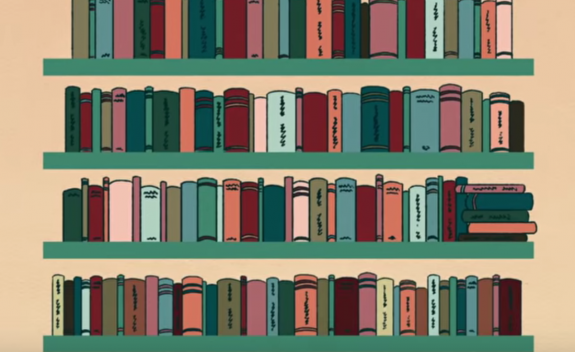
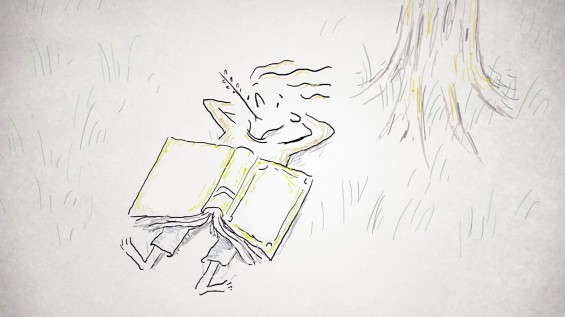
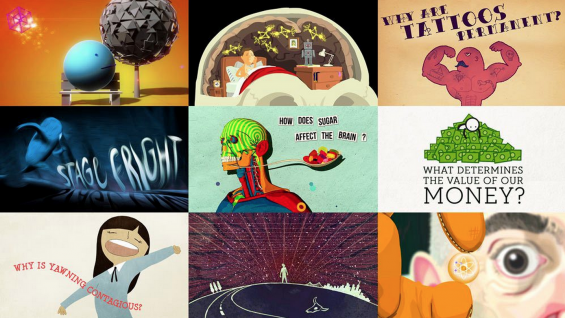
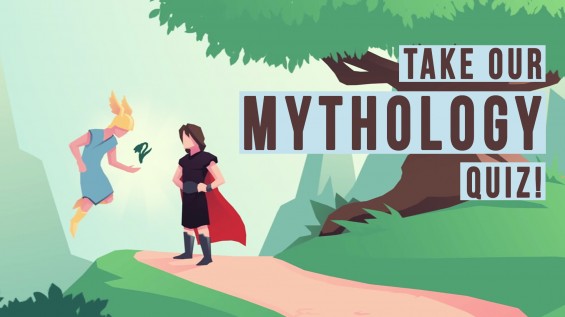
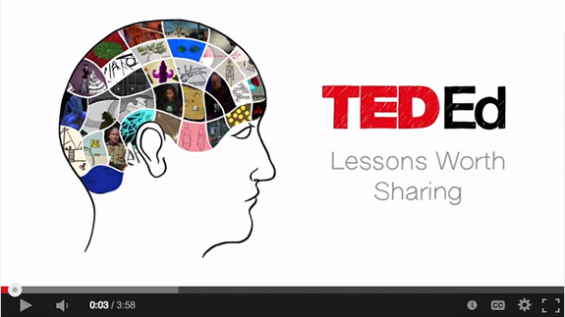
Thank you for sharing
love TED
‘No man can put a chain about the ankle of his fellow man without at last finding the other end fastened about his own neck.’ – An elegant quote.
Start reading “My Bondage and My Freedom”
Obscure memoir I would recommend.
http://www.savedfromenlightenment.com/
Great! I would also love to know recommended books on personal development or psychology.
Excellent. Albeit I am a little taken aback that my book did not make the list.
The fact that it’s not written yet is neither here nor there.
May I suggest for those who like a laugh to read:
The Hitchhicker’s Guide to the Galaxy – Douglas Adams;
Preincarnate – Shaun Micallef
And those with a short attention span will like the collection of very short stories (and other odds and ends) also by Shaun Micallef, ‘Smithereens’
Really love that books are liked to library, world catalogue and not a shopping site. Well done.